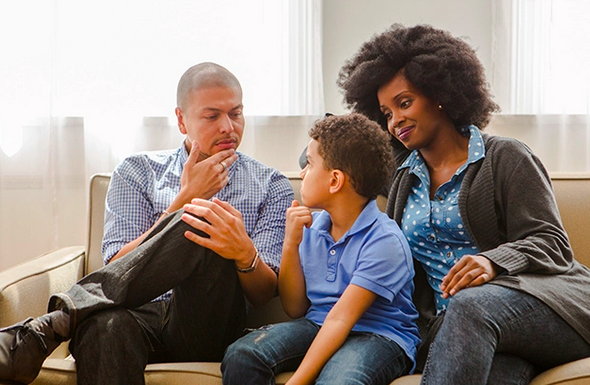
Here’s the bad news: Many millions of children in the United States deal with some type of mental illness. Here are some numbers:
9.4% of children aged 2-17 years (approximately 6.1 million) have received an ADHD diagnosis.
7.4% of children aged 3-17 years (approximately 4.5 million) have a diagnosed behavior problem.
7.1% of children aged 3-17 years (approximately 4.4 million) have diagnosed anxiety.
3.2% of children aged 3-17 years (approximately 1.9 million) have diagnosed depression.
Source: Children’s Mental Health
That’s a lot of kids! But here’s the good news: stigma around mental illness and psychological disorders is decreasing as more programs take aim at eradicating incorrect assumptions about mental health disorders and their treatments.
One of the best ways we can combat stigma around mental illness is by talking to our kids early and often about mental health and illness, as well as psychological treatment. The more we normalize these types of discussions, the better. Here are some tips for talking to your kids about mental health:
Be open about your own emotions. One way to help your kids become used to sharing their emotions, is by sharing your own on a regular basis. In a developmentally appropriate manner (i.e., using simple brief concepts with young kids, and progressively more complex words and concepts with older kids), try talking clearly about your own feelings: “Geez, that hurt my feelings when I didn’t get invited to Jenny’s birthday party,†or “I’m feeling a little overwhelmed with all the work deadlines I have this month,†or “I am so proud of the hard work you put into that homework assignmentâ€
Be open about how you manage your psychological health. Try sharing with your kids what you do to manage your mental mental health. Sharing things like: “I’m going to be taking a walk this evening. It was a tough day at work, and the fresh air helps me feel less stressed.†or “I am feeling a little down today, I think I might call Grandma. Talking to her always helps me feel better.†Again, we want to keep these conversations developmentally appropriate, and our kids aren’t our therapists. However, sharing the healthy strategies we use to manage our emotions will provide them a template for when they need strategies to manage their own psychological health.
Make talking about mental health an everyday thing. We don’t need to talk about the state of our kids’ mental health every single day, but it’s best if it can be a pretty regular occurrence – say, a couple of times per week, for example. We want to get to a point where speaking about emotions and mental health is just as easy and normal as talking about the soccer team, your favorite TV show or the new super hero movie you want to see. Here are some questions to get you started:
–â€What are you excited about these days?â€
“What’s on your mind right now?â€
“How would you describe your mood today?â€
“What are you worried about?â€
The possibilities are endless, and each family needs to find their own, unique language for talking about mental health. But here’s a quick tip: Try asking questions that are open-ended, these tend to produce much more interesting conversations than those that can be answered by a simple “yes†or “no.â€
